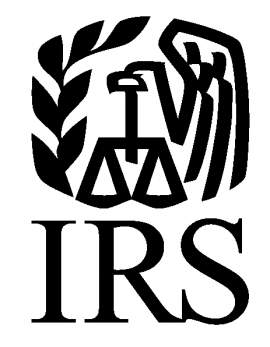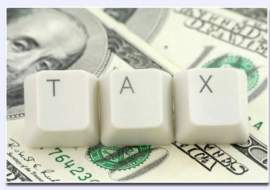
A Complete Guide to Consumption Taxes

Those items are usually goods and services provided for consumers. Unlike income tax, consumption taxes are indirect because they are not contingent on a persons income. In fact, consumers have a decision about which products to buy, and they do not have to pay taxes on items that they do not buy. The amount of a consumption tax, is dependant on the products that a specific consumer buys. So a consumption tax is based on what an taxpayer spends, rather than on what they earn.
Tax reform advocates often argue in favor of consumption taxes being used as a replacement for income taxes. If that were to happen, consumers would be encouraged to take part in savings plans and investments. Consumption taxes would not include any taxes on savings accounts, investment accounts or the sale of stocks and bonds. However, consumption taxes can actually be biased based on a persons salary. For example, a middle class consumer that makes a purchase of a similar value, when compared to a purchase by a wealthy individual, is shouldering a higher tax burden.
Flat rate consumption taxes force those that make a lower salary, to pay a higher percentage of their salary toward taxes on a purchase that incur a lower percentage tax for a wealthy person. In order to offset that difference, it has been proposed that higher end items should incur a larger percentage of consumption tax. A wealthy consumer, for instance, would be more likely to purchase a luxury vehicle. If a middle class consumer were to purchase a mini van, the taxes would be lower than those imposed on a luxury vehicle because taxes should be imposed as a percentage of someone's salary, no matter how the taxes are actually imposed.
Background:
Consumption taxes are taxes place on certain goods and services. There are many types of consumption taxes and some items may incur more than one type of consumption tax. For example, a boat being manufactured may have each part taxed before the boat is assembled. In addition, the paint and other items necessary to complete the boat, would also likely be taxed. Finally, the sale of the boat would be taxed. All of those taxes are considered consumption taxes. Consumption taxes have historically been utilized to increase tax revenue within each separate tax jurisdiction. The Constitution gives each state the right to impose state taxes at the discretion of each state's individual tax laws. Therefore, consumers in each state likely pay a different percentage of sales tax, if they are required to pay any at all. Consumption taxes can also be imposed at the federal level. For example, an excise tax on alcohol can be imposed by the federal and each state's government.
Sales Tax:
Sales taxes are a tax that is imposed on the purchase of most consumer goods and some services. There can be both a state and federal sales tax on any one item. For example, gasoline often has both a state sales tax and a federal sales tax associated with it and each tax in imposed on a per gallon basis. In addition to that excise tax, many states opt to add other types of sales taxes to the price of each gallon of gasoline.
There are many sales taxes that are imposed before a product even reaches the consumer. For example, the gross receipts tax is a tax imposed on businesses based on their total profit. An estimate of that tax may be imposed as an added cost on a product, as a part of the price, before that product reaches the consumer. Generally, consumers only see their regular state sales tax as a separate line item on receipts. It is likely that all other sales taxes were included in the cost of each specific item before the consumer paid for that item.
Background:
Sales taxes have been utilized within many jurisdictions in order to increase revenue. There are may types of sales tax and each jurisdiction may impose different types of sales taxes and at different rates. The Constitution allows each state to determine what percentage of sales tax, if any, that it imposes on goods and services. There are some states that do not impose a direct sales tax on items sold within that state. If however, a person that is not a resident of that state were to purchase an item and bring it back to their state, they would be subject to a use tax.
The use tax is a sales tax that would be imposed on that item by the state of residency, but only if that item is normally taxed in that state. Each state can make separate determinations on which types of sales taxes are imposed on taxpayers in that state. However, every taxpayer is subject to federal sales taxes, when they apply. While a state may not impose an excise tax on gasoline, the federal government does and residents of every state are required to pay that tax, regardless of their state's tax law.
Types:
There are at least ten types of sales tax and most of them are utilized in the United States, depending on each jurisdiction's sales tax law. Federal sales taxes are imposed in every state, according to federal sales tax law. However, each state has the power to impose sales tax at their discretion, according to that states sales tax laws. In fact, some states do not impose any sales tax. Whereas, other states impose sales tax on the purchase of any item, at every stage of manufacturing.
Often the taxes imposed on items during the manufacturing phase, are added to the cost of an item. Frequently, consumers pay a sales tax when they purchase an item, but they also pay other taxes that have already been added to the price of that item. In essence, consumers are sometimes paying sales tax on top of sales tax. Profit from items that are resold after they have been purchased, are also subject to taxes. Those taxes may be paid under a capital gain tax, or a variety of other taxes depending on the surrounding circumstances.
Sales taxes are consumption taxes. Gross receipt taxes are taxes paid on the profit of a company. Generally speaking, the company will have included that tax in the sale of their items. The purchase price of goods and services, often includes a companies estimated tax burden, as a part of the cost of that product. Excise tax may also be imposed upon certain products, such as gasoline. Excise taxes can be assessed as apart of a sales tax on a federal and state level as long as it is compliance with sales tax law.
In fact, local municipalities may also impose an excise tax. The total excise tax placed on an item could total as much as fifty percent after that tax has been imposed by all municipalities. In addition, consumers must pay a use tax if they purchase an item in state other than the one in which they reside. The use tax only applies to items that are taxed within an individuals state of residence. For example, a resident of New Jersey does not have to pay a use tax on jeans purchases in New york because New Jersey does not tax clothing in their sales tax laws.
However, if a resident of New Jersey were to purchase cigarettes in Pennsylvania, those cigarettes are subject to use tax because cigarettes are taxed by New Jersey. A fairtax is a tax that is meant to eliminate the need for many other taxes. Like the value added tax, the fairtax is meant to tax consumers at the point of purchase. These taxes are proposed to be a replacement of income taxes, by the tax reform movement.



















